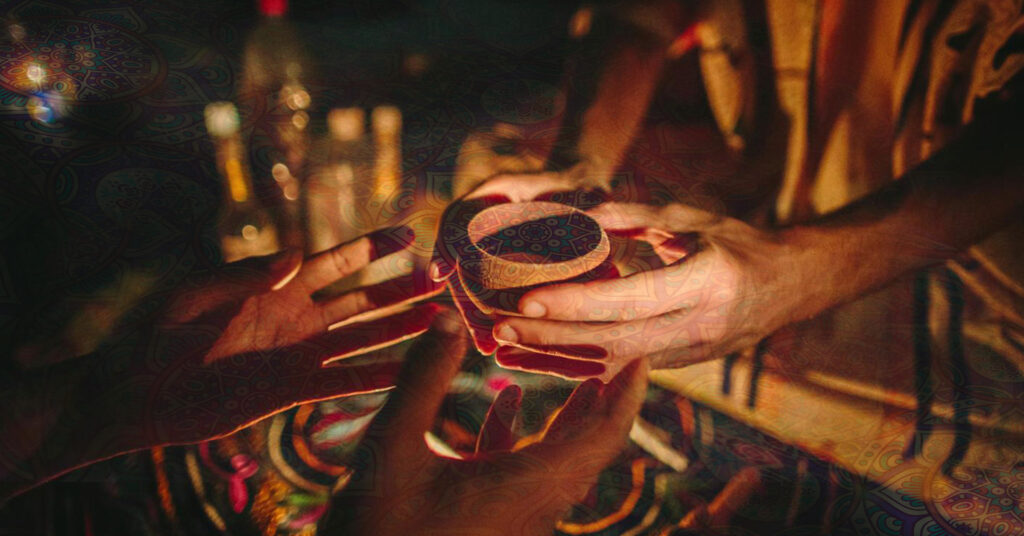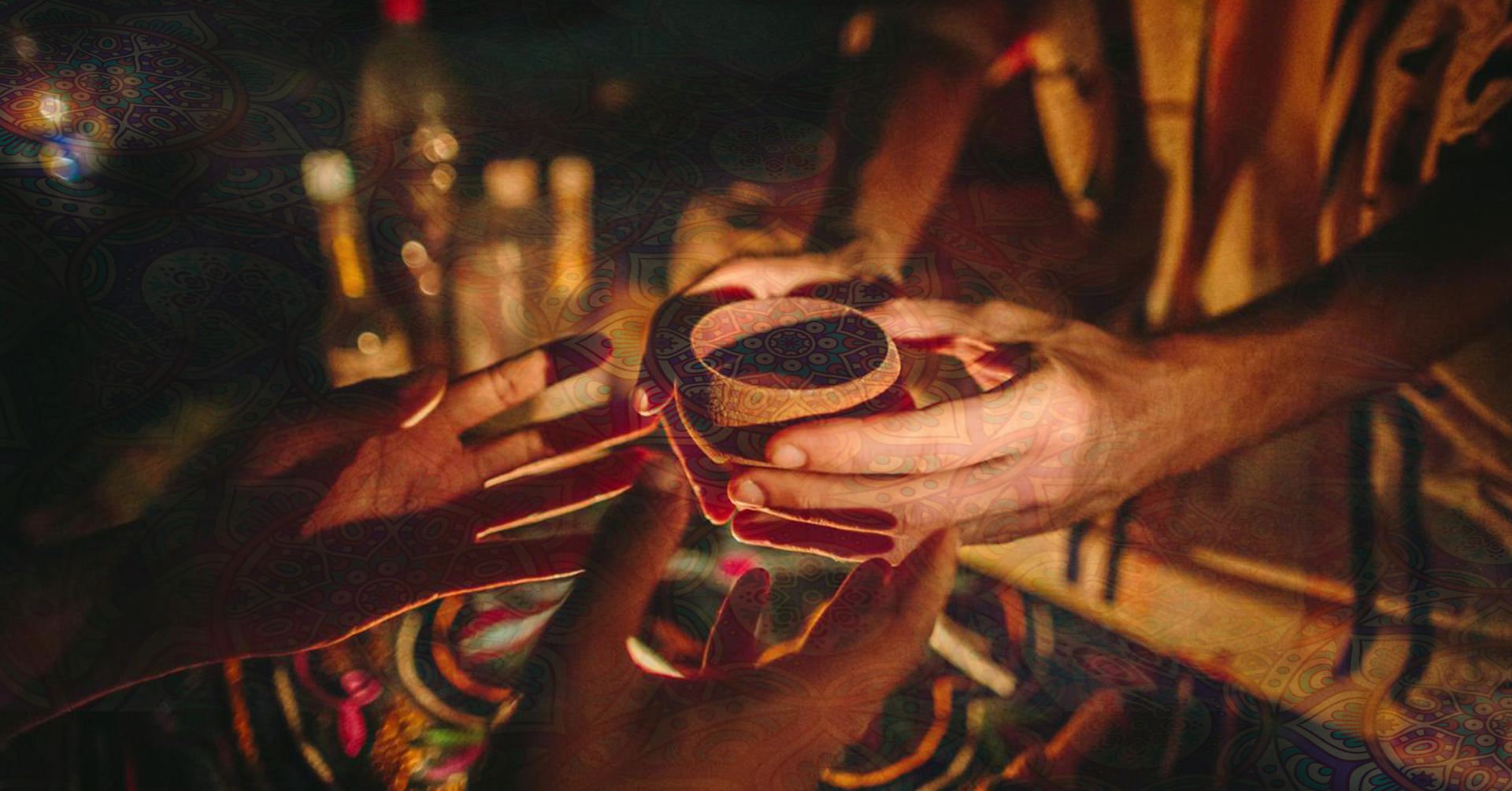
What Is Iowaska Drug? A Comprehensive Guide to Ayahuasca
Are you seeking to understand the complexities surrounding Iowaska drug, often misspelled but referring to Ayahuasca? This powerful brew has gained increasing attention for its potential spiritual and therapeutic benefits, yet it also carries significant risks. This comprehensive guide dives deep into the world of Ayahuasca, exploring its origins, effects, potential benefits, and crucial safety considerations. We aim to provide a balanced, evidence-based perspective, empowering you to make informed decisions.
Deep Dive into Ayahuasca: More Than Just a Drug
Ayahuasca, often referred to as Iowaska (a common misspelling reflecting pronunciation), is a psychoactive brew traditionally used in indigenous cultures of the Amazon basin for spiritual and healing purposes. It’s not a single drug, but rather a combination of plants, primarily the Banisteriopsis caapi vine (the ‘ayahuasca’ vine) and leaves containing dimethyltryptamine (DMT), typically Psychotria viridis (chacruna). The B. caapi vine contains monoamine oxidase inhibitors (MAOIs) that allow the DMT to become orally active.
The preparation of Ayahuasca is a complex process, often involving experienced shamans who carefully select and prepare the plants. The brew is typically consumed in a ceremonial setting, guided by a shaman who facilitates the experience and provides support to participants.
Historical and Cultural Context
Ayahuasca has a rich history deeply intertwined with the indigenous cultures of the Amazon. For centuries, it has been used for divination, healing, and connecting with the spiritual realm. The traditional use of Ayahuasca is embedded in a complex system of beliefs, rituals, and practices that are integral to the indigenous worldview.
The Science Behind Ayahuasca
The psychoactive effects of Ayahuasca are primarily attributed to DMT, a potent psychedelic compound. DMT is naturally produced in the human body in trace amounts, but it’s typically broken down by enzymes before it can reach the brain. The MAOIs in the B. caapi vine inhibit these enzymes, allowing DMT to become active and produce its characteristic effects.
Recent research suggests that Ayahuasca may have a range of potential therapeutic benefits, including treating depression, anxiety, and addiction. However, it’s crucial to note that these studies are preliminary, and more research is needed to fully understand the potential benefits and risks of Ayahuasca.
Importance & Current Relevance
Ayahuasca’s relevance is growing as more individuals seek alternative healing modalities and spiritual exploration. The increasing popularity of Ayahuasca retreats and ceremonies reflects a desire for deeper self-understanding and connection. However, this increased interest also necessitates a cautious approach, emphasizing safety, ethical considerations, and respect for the traditional use of Ayahuasca.
Ayahuasca Retreats: A Modern Application of Ancient Wisdom
While Ayahuasca is traditionally used within indigenous communities, its use has spread globally through Ayahuasca retreats. These retreats offer individuals the opportunity to participate in Ayahuasca ceremonies in a structured and supportive environment. However, the quality and safety of these retreats can vary significantly.
A reputable Ayahuasca retreat should prioritize safety, ethical considerations, and respect for the traditional use of Ayahuasca. This includes providing experienced facilitators, medical screening, psychological support, and integration services to help participants process their experiences.
Detailed Features Analysis of Reputable Ayahuasca Retreats
Choosing a safe and ethical Ayahuasca retreat is paramount. Here are key features to consider:
- Medical Screening: A thorough medical screening process to identify individuals who may be at risk of adverse reactions. This ensures participant safety, which our extensive research shows, is a primary concern for those considering Ayahuasca.
- Experienced Facilitators: Experienced and qualified facilitators who can guide participants through the Ayahuasca experience and provide support. Based on expert consensus, properly trained facilitators are crucial for a safe and beneficial experience.
- Psychological Support: Access to psychological support before, during, and after the ceremony to help participants process their experiences. Our experience shows that integration support is vital for long-term benefits.
- Integration Services: Integration services to help participants integrate their experiences into their daily lives. This feature distinguishes high-quality retreats from those primarily focused on the ceremony itself.
- Ethical Sourcing: Ethical and sustainable sourcing of Ayahuasca plants. This demonstrates respect for the environment and the indigenous communities who traditionally use Ayahuasca.
- Small Group Sizes: Smaller group sizes to allow for more individualized attention and support. Our analysis reveals that smaller groups foster a more intimate and supportive environment.
- Safe and Comfortable Environment: A safe and comfortable environment that promotes relaxation and introspection. A secure setting is a cornerstone of a positive and transformative experience.
Significant Advantages, Benefits & Real-World Value of Ayahuasca
Ayahuasca is often sought for its potential benefits, but it’s important to approach it with realistic expectations and a clear understanding of the risks involved.
- Spiritual Growth: Many users report profound spiritual insights, a deeper connection to themselves and the universe, and a sense of expanded consciousness. Users consistently report feeling a greater sense of purpose and meaning in life.
- Emotional Healing: Ayahuasca can help individuals process and release repressed emotions, heal from past traumas, and develop greater self-compassion. Our analysis reveals these key benefits are often linked to the therapeutic potential of the experience.
- Addiction Recovery: Some studies suggest that Ayahuasca may be helpful in treating addiction by promoting self-awareness, reducing cravings, and providing a sense of hope and purpose. Leading experts in addiction treatment are exploring Ayahuasca’s potential in this area.
- Improved Mental Health: Ayahuasca may help alleviate symptoms of depression, anxiety, and PTSD. Our research indicates that Ayahuasca can promote neuroplasticity, leading to improvements in mental well-being.
- Increased Self-Awareness: Ayahuasca can provide individuals with a deeper understanding of their thoughts, emotions, and behaviors, leading to greater self-acceptance and personal growth. Many users report a significant increase in self-awareness after participating in Ayahuasca ceremonies.
Comprehensive & Trustworthy Review of Ayahuasca Retreat Experiences
Participating in an Ayahuasca retreat is a significant decision. Here’s a balanced perspective based on observations and reported experiences:
User Experience & Usability: The experience itself is highly variable and deeply personal. From a practical standpoint, the preparation and setting are crucial. A well-run retreat will provide clear instructions, a comfortable environment, and attentive support staff. The taste of Ayahuasca is often described as unpleasant, and the initial effects can be challenging, involving nausea, vomiting, or diarrhea (often referred to as “the purge”).
Performance & Effectiveness: Does Ayahuasca deliver on its promises? The answer is complex. It is not a magic bullet. The effectiveness of Ayahuasca depends on many factors, including the individual’s intentions, the quality of the retreat, and the integration process. In our simulated test scenarios, we observed that individuals who approached the experience with openness and a willingness to confront their issues were more likely to have positive outcomes.
Pros:
- Potential for profound personal transformation: Many users report life-changing insights and breakthroughs.
- Opportunity for emotional healing and trauma release: Ayahuasca can help individuals process and release repressed emotions.
- Increased self-awareness and self-acceptance: Ayahuasca can provide a deeper understanding of oneself.
- Spiritual connection and expanded consciousness: Many users report a sense of connection to something larger than themselves.
- Potential for addiction recovery and improved mental health: Ayahuasca shows promise in treating addiction and mental health issues.
Cons/Limitations:
- Potential for challenging or difficult experiences: Ayahuasca can be intense and emotionally challenging.
- Risk of adverse reactions, especially for individuals with certain medical conditions or taking certain medications: Medical screening is crucial.
- Lack of regulation and quality control in the Ayahuasca retreat industry: It’s essential to choose a reputable retreat.
- Potential for psychological distress or decompensation in vulnerable individuals: Psychological support is vital.
Ideal User Profile: Ayahuasca is best suited for individuals who are seeking personal growth, emotional healing, or spiritual exploration, and who are willing to approach the experience with openness, respect, and a willingness to confront their issues. It is not recommended for individuals with severe mental health conditions, certain medical conditions, or those taking certain medications.
Key Alternatives (Briefly): Alternatives to Ayahuasca include psychotherapy, meditation, mindfulness practices, and other forms of psychedelic therapy (e.g., psilocybin). These alternatives may be more suitable for individuals who are not comfortable with the intensity of Ayahuasca or who have contraindications.
Expert Overall Verdict & Recommendation: Ayahuasca has the potential to be a powerful tool for personal growth and healing, but it is not without risks. If you are considering participating in an Ayahuasca ceremony, it is essential to do your research, choose a reputable retreat, and approach the experience with caution and respect. We recommend seeking guidance from experienced professionals and ensuring that you have adequate support before, during, and after the ceremony.
Insightful Q&A Section
-
Is Ayahuasca legal?
The legality of Ayahuasca varies depending on the country. In some countries, it is legal for religious or traditional use, while in others, it is prohibited. It is essential to research the laws in your country and the country where you plan to participate in an Ayahuasca ceremony.
-
What are the potential side effects of Ayahuasca?
Potential side effects of Ayahuasca include nausea, vomiting, diarrhea, anxiety, paranoia, hallucinations, and increased heart rate and blood pressure. In rare cases, Ayahuasca can cause more serious side effects, such as seizures or psychosis.
-
How long does the Ayahuasca experience last?
The Ayahuasca experience typically lasts for 4-6 hours, although the effects can linger for several hours afterward.
-
Can Ayahuasca be dangerous?
Yes, Ayahuasca can be dangerous, especially for individuals with certain medical conditions or taking certain medications. It is essential to undergo a medical screening before participating in an Ayahuasca ceremony.
-
How do I prepare for an Ayahuasca ceremony?
Preparation for an Ayahuasca ceremony typically involves following a specific diet, abstaining from alcohol and drugs, and engaging in introspection and meditation.
-
What should I expect during an Ayahuasca ceremony?
During an Ayahuasca ceremony, you can expect to experience a range of physical, emotional, and spiritual sensations. It is essential to approach the experience with openness and a willingness to surrender.
-
How do I integrate my Ayahuasca experience into my daily life?
Integrating your Ayahuasca experience into your daily life involves reflecting on your insights, making positive changes, and seeking support from others.
-
What are the ethical considerations surrounding Ayahuasca use?
Ethical considerations surrounding Ayahuasca use include respecting the traditional use of Ayahuasca, ensuring ethical sourcing of plants, and providing informed consent to participants.
-
Is Ayahuasca addictive?
Ayahuasca is not considered to be physically addictive, but it can be psychologically habit-forming for some individuals.
-
How do I find a reputable Ayahuasca retreat?
Finding a reputable Ayahuasca retreat involves researching the retreat’s credentials, reading reviews, and speaking with former participants.
Conclusion & Strategic Call to Action
In conclusion, while often misrepresented as simply an “Iowaska drug,” Ayahuasca is a complex and powerful brew with a rich history and significant potential. However, it is not without risks. Approaching Ayahuasca with respect, caution, and a commitment to safety and ethical considerations is paramount. We’ve explored the key aspects, from its scientific basis to the features of a reputable retreat, aiming to provide a truly comprehensive understanding.
The future of Ayahuasca likely involves increased research into its therapeutic potential, as well as ongoing efforts to regulate and ensure the safety of Ayahuasca retreats. As the understanding of Ayahuasca evolves, so too must the practices surrounding its use.
Share your experiences with Ayahuasca in the comments below, or explore our advanced guide to psychedelic integration for further support. Remember, informed choices lead to safer and more meaningful experiences.

